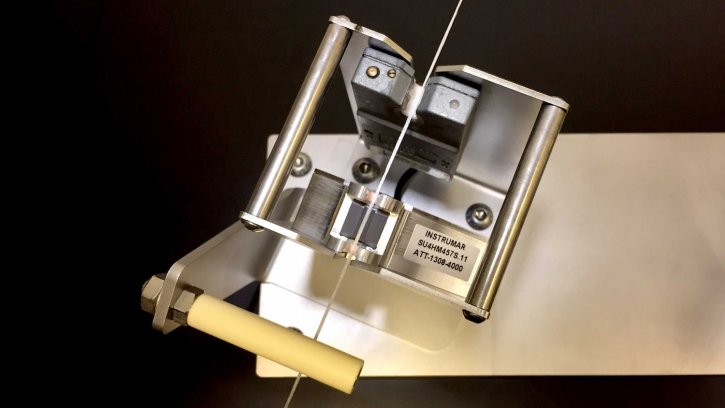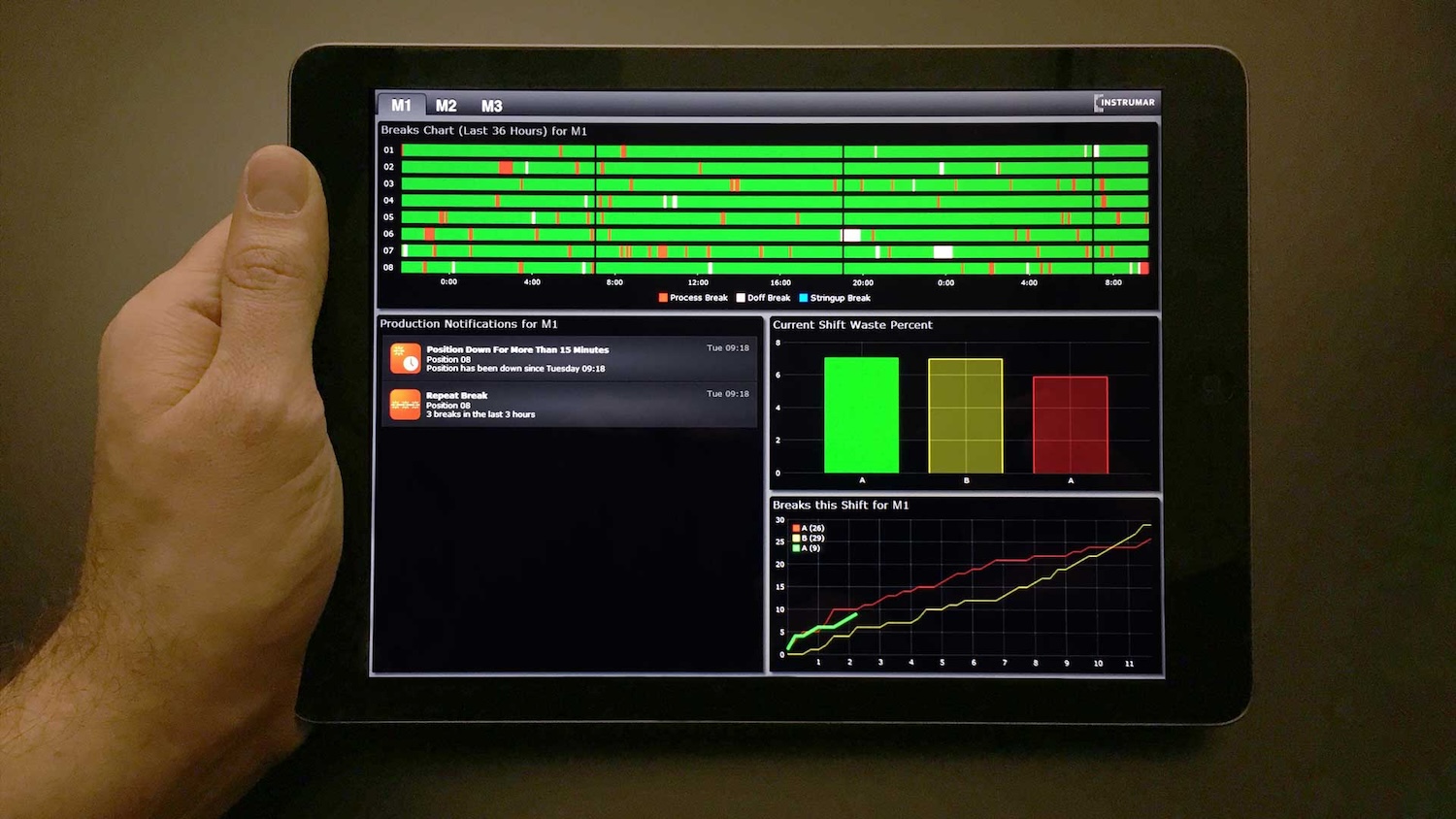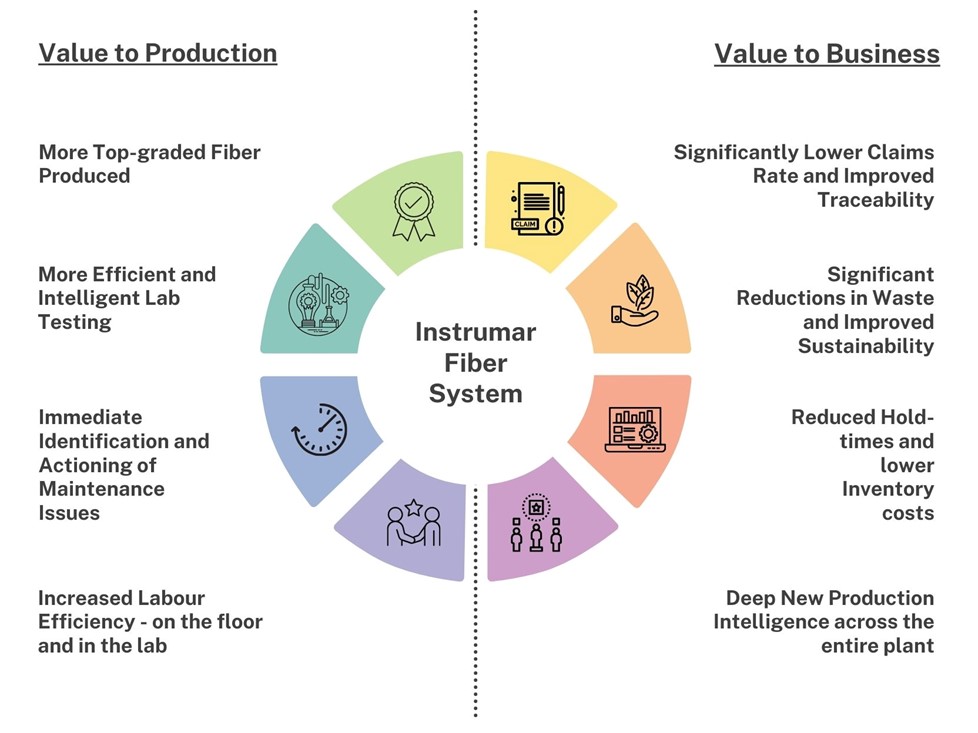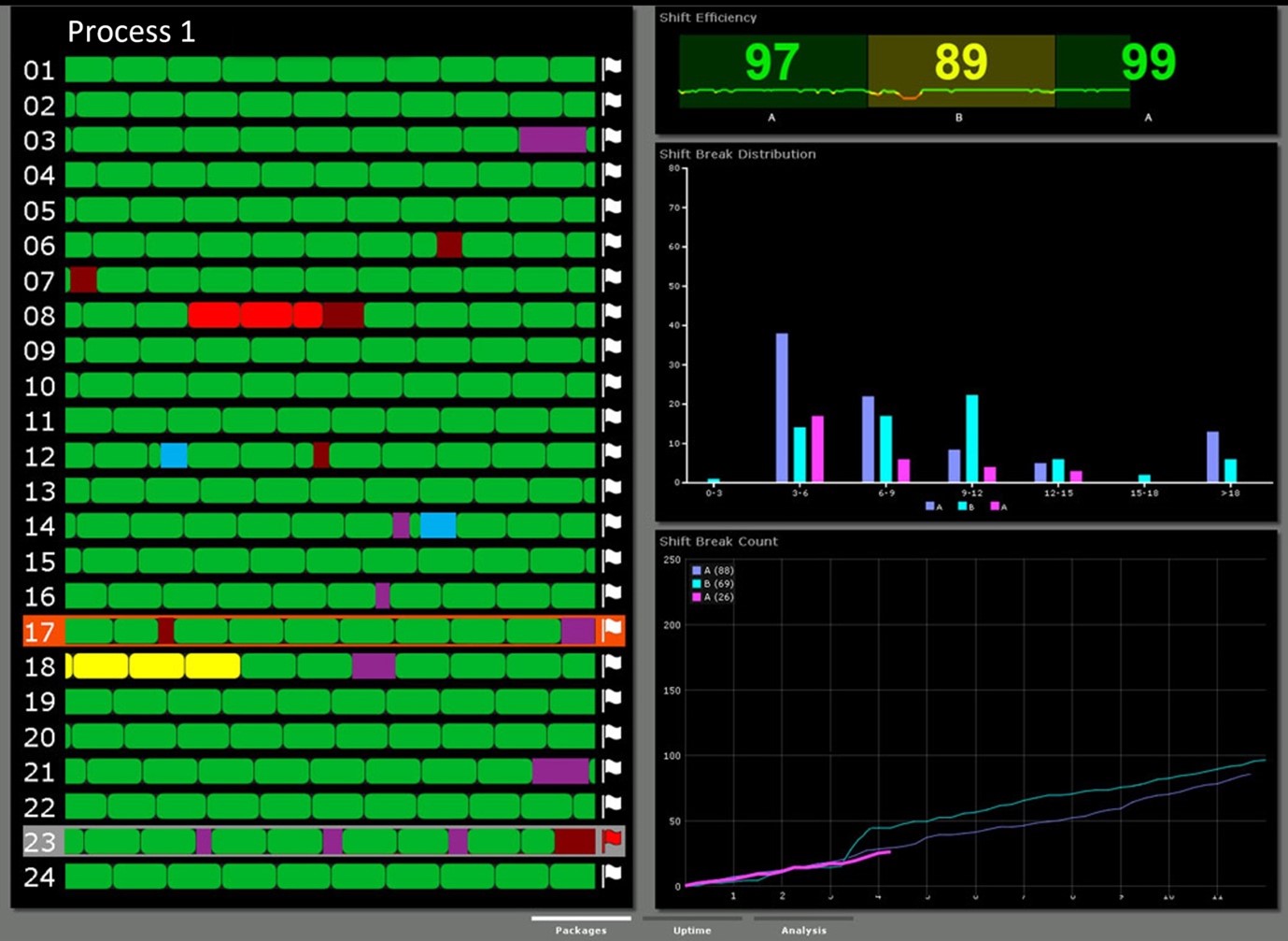
The problem with fashion’s recycled polyester push…
Paid content
The Instrumar Fiber System draws on more than 20 years’ experience to utilise unique electromagnetic sensors with a superior ability to detect a wider range of fibre defects.

5th March 2024
Innovation in Textiles
|
St. John's, Newfoundland, Canada
The global textiles industry is experiencing an era of unprecedented automation, alternatively referred to as the Industrial Internet of Things (IIoT), Industry 4.0, or ‘hyperautomation’ making manufacturing smarter, and more interconnected than ever.
This in turn is placing a renewed emphasis on ensuring quality control throughout the process, not just a checking system applied at the end. A recent report on hyperautomation by Forrester found that 43% of decision-makers ranked autonomous, self-guided and dynamic processes that leverage Artificial Intelligence (AI) as a high priority as part of a drive to increase productivity, agility and speed in manufacturing.
Real-Time Quality Management (RTQM) is an essential part of the automation process, and within this, sophisticated sensors and software are assuming increasing importance because of the link to industrial robotics and AI. In this feature, we look at what RTQM is, its importance now and future potential for textiles - fibre and yarn manufacturing in particular.
The rise of IIoT, the drive to more connected supply chains and demand for transparency mean that traditional forms of quality control are no longer enough. The increasing use of more powerful quality systems by downstream customers is expected to result in increased pressure on upstream fibre producers as their customers are getting better at spotting any quality issues that may have made it through to them.

An example of this already being seen is the use of machine vision systems in circular knitting and weaving. Data, information exchange and quality control need to take place in real time. The alternative leads to delays, spoiled stock, increased waste and environmental impacts, loss of reputation and business.
Advances in the three key technology areas of sensing, data analytics and automation are allowing for manufacturing processes to be monitored continuously in real-time, with quality issues identified and acted on quickly. Instrumar have developed a system tailored to address the specific needs of synthetic fibre production.
The Instrumar Fiber System draws on more than 20 years’ experience to utilise unique electromagnetic sensors with a superior ability to detect a wider range of fibre defects such as node count and quality that could significantly impact the dye consistency and quality further along the production chain.
The ability to detect multiple issues is important to identify and address problems in a timely and efficient manner. In addition to node count and quality, The Instrumar Fiber System also identifies spin finish fluctuations, variable denier, filament migrations, and fluffs or ‘slubs’. The software can often suggest the underlying causes for these defects, such as operator error or machine issues such as clogged jets, pumps, heater and other problems.
It is this combination, along with the ability to integrate with the machine control systems to automatically take action to downgrade and control production, that marks it as unique amongst quality control approaches available on the market.

Speed and efficiencies are the hallmarks of IIoT, Industry 4.0 and hyperautomation. The higher levels of automation and speed of production means that leaving testing until the end of production runs can be costly, with more product waste, alongside negative environmental and reputational impacts.
Complexity and interconnectivity exacerbate the problem, making it more difficult to identify exactly where and when the problem occurred in order to address it. Correcting the error in a timely manner is needed to avoid loss of stock and reputation. The value of RTQM such as the Instrumar Fiber System can be seen when considering that the average manufacturing company incurs a Cost of Poor Quality (COPQ) of around 20% of total sales, according to estimates from the American Society for Quality (ASQ). Instrumar’s own customer research reveals up to 95% reduction in customer claims when using their system with some manufacturers reporting a 5-10% increase in their top-grade fibre.

The global demand that manufacturers reduce their environmental impact is being seen in increased legislation and consumer awareness that is impacting the whole textile sector. Environmental, Social, Governance (ESG) policies are coming to the fore, but even for those who do not declare their policies, machine upgrades and new acquisitions are taking account of ESG.
The ability to provide ESG benefits can be seen as a natural extension of RTQM core activities around efficiencies and waste reduction. It can help to significantly reduce waste, identifying and notifying workers about defects in real-time, avoiding the continued production of bad packages of fibre until the issue is eventually caught by lab inspections.
This saves waste polymer, water, energy and labour. That technologies such as the Instrumar Fiber System can be retrofitted to existing machines avoids equipment obsolescence. It also offers workers the chance to acquire new skills and career enhancement making technology-forward manufacturers more attractive to the workforce.
The World Economic Forum (WEF) stresses the need to reskill the workforce, particularly those that are in danger of displacement by automation. In their Future of Jobs Report 2023, the WEF predict that by 2025 automation and AI will have created 12 million more jobs than they displace globally. Real-Time Quality Management (RTQM) has a growing role to play in the automated future of the fibre and yarn industry, with Instrumar Fiber System experienced in providing an advanced technology capable of meeting the diverse and complex needs of the industry.
Instrumar is a Canadian, employee-owned company that has been solving industrial technology challenges for more than 40 years. In 1998 the company began the development of a sensor for the real time monitoring of synthetic fibre production with the first commercial sale of Instrumar Fiber Sensors coming two years later to Dupont Canada. Instrumar is both ISO 9001:2015 and AS9001D certified with the company’s patented sensor solutions now achieving more than 20 years of global success in synthetic fibre production.
Further information
Phone: +1 709-726-8460
e-mail: [email protected]

Business intelligence for the fibre, textiles and apparel industries: technologies, innovations, markets, investments, trade policy, sourcing, strategy...
Find out more